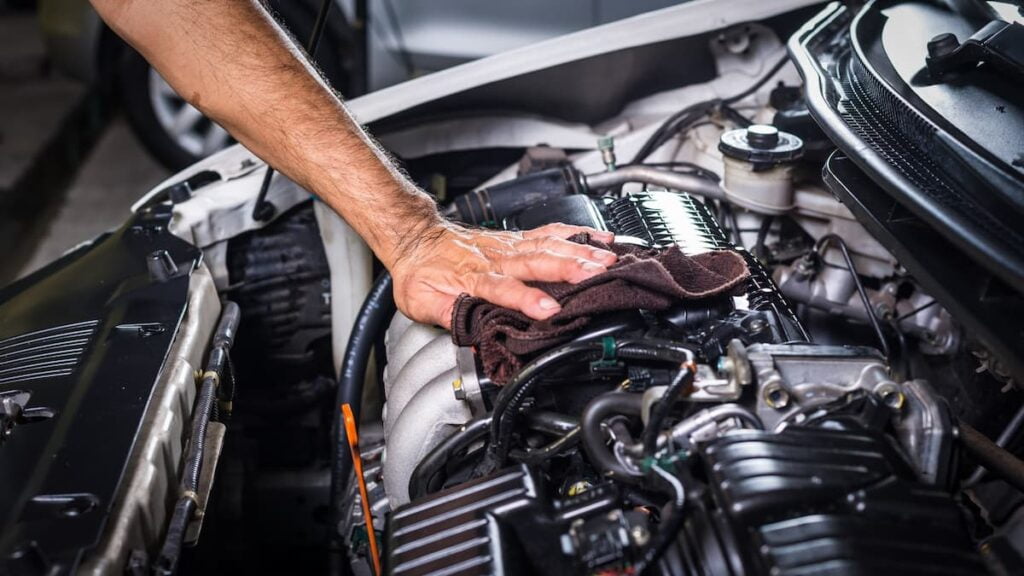Car Engine Performance-Diesel engines emit particulate matter( PM) during combustion, challenging the use of diesel particulate pollutants( DPFs) to manage emissions. DPFs efficiently capture and store PM, but proper maintenance is pivotal for optimal functionality. The accumulated PM is either burned off through regeneration or manually cleaned to help sludge clogging. still, manual cleaning, while effective, requires experience and specialised equipment, frequently performed by professionals trained in DPF conservation.
This process, known as DPF professional cleaning, ensures thorough junking of accumulated soot and ash, restoring the sludge’s effectiveness and prolonging its lifetime. Regular DPF conservation, including professional cleaning when necessary, is essential for maintaining engine performance and complying with emissions regulations. By addressing PM emissions effectively, DPFs contribute to cleaner air and sustainable diesel machine operation. In this article, we’ll discover the effect of PDF on engine performance.
Enhanced Car Engine Performance and Fuel Efficiency:
A congested DPF has the potential to impede exhaust flow, resulting in elevated back pressure within the engine, which, in turn, diminishes engine output and escalates fuel usage. By undergoing DPF cleaning, optimal exhaust flow is reinstated, thereby revitalising engine performance and fuel efficiency. Regular maintenance, including periodic DPF cleaning, not only ensures smooth engine operation but also maximises fuel economy and prolongs the lifespan of engine components. Thus, prioritising DPF upkeep is integral to sustaining peak engine performance and achieving optimal fuel efficiency in diesel vehicles.

Minimised Emissions:
While DPFs aim to curtail particulate matter (PM) emissions, a congested filter compromises its efficacy. A contaminated DPF exacerbates PM and pollutant emissions, undermining environmental objectives. Opting for DPF cleaning is instrumental in curbing emissions and fostering cleaner air standards. By maintaining a clean DPF, diesel vehicles contribute to reducing their environmental footprint and promoting healthier air quality. This proactive approach not only aligns with emission regulations but also underscores the commitment to sustainable mobility practices, benefiting both public health and the environment.
Reduced Downtime:
Maintaining a clean DPF helps avert potential complications that may prompt dashboard warning lights and engage the engine’s limp mode, a safety measure that limits power output or initiates shutdown. Such occurrences can pose significant hazards, especially in critical situations. Ensuring regular DPF maintenance not only mitigates these risks but also promotes uninterrupted engine operation, minimising downtime and enhancing vehicle reliability. By prioritising the cleanliness of the DPF, drivers proactively safeguard against unexpected disruptions, optimising overall vehicle performance and ensuring safe journeys across various driving conditions. Incorporating DPF cleanliness into routine maintenance routines underscores a commitment to vehicle longevity and reliability, contributing to a smoother driving experience and greater peace of mind on the road.
Engine Won’t Start:
Excessive buildup of exhaust gases can hinder the engine’s startup process, persisting until pressure levels normalise. While inconvenient, this safeguard mechanism serves to prevent potential harm to both the engine and the diesel particulate filter (DPF). Although a non-starting engine can be concerning, it signals the vehicle’s proactive approach to safeguarding critical components from damage. Seeking prompt assistance from a qualified mechanic is imperative to diagnose and address any underlying issues affecting engine performance and DPF functionality. By promptly addressing starting difficulties, drivers uphold the integrity of their car engine performance and ensure optimal operation, minimising the risk of costly repairs down the line.
Importance Of Dpf Maintenance:
Regular DPF maintenance serves as a proactive measure to prevent blockages and optimise filter performance. By reducing the burn-off temperature of accumulated soot, DPF cleaning helps maintain efficient exhaust flow and minimises the risk of clogging. Ideally, DPF cleaning should occur every six months, or sooner if signs of reduced power or decreased fuel economy emerge.
Additionally, a warning indicator on the dashboard may signal the need for immediate DPF attention. It’s crucial to heed these warnings, as any illuminated dashboard lights can result in MOT failure. Taking prompt action to address DPF maintenance ensures uninterrupted car engine performance operation and prevents potential damage to vital components. By including normal DPF cleansing right into vehicles’ upkeep regimens, vehicle drivers promote efficiency requirements and also advertise long-lasting engine health. Prioritising positive upkeep not only boosts gas performance but additionally adds to general car dependability as well as conformity with regulative criteria.
Conclusion:
DPF innovation plays a substantial duty to fit modern-day diesel motor efficiency along with ecological conformity. While it properly decreases hazardous exhausts together with enhanced air top quality, its influence on car engine performance efficiency is complex. When appropriately incorporated along preserved, DPF systems can boost car engine performance together with the gas economic situation without endangering efficiency. Nevertheless disregarding DPF upkeep can result in damaging impacts on engine efficiency together with total car dependability. As modern automobile technology continues to develop continuous development in DPF style as well as the application will certainly better maximise engine efficiency while lessening ecological effects.
Visit blogsmag for more informative news.


3 Comments
Pingback: The Significance Of Number Plates In Vehicle Identification
Pingback: How Car Alarms Can Help To Secure Your Car From Thief?
Pingback: 5 Easy Ways To Increase Your Car Engine Performance